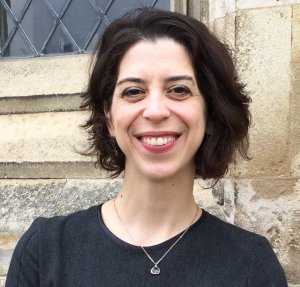Presented By: Center for South Asian Studies
CSAS Lecture Series | Corruption and Forensic Experts in British India
Mitra Sharafi, Associate Professor of Law, University of Wisconsin Law School

Systems for the collection and analysis of forensic evidence in late colonial India were designed to minimize corruption, particularly the alteration and fabrication of evidence by low-ranking workers—implicitly South Asian—in the police, railroads, and postal service. This talk examines allegations of corruption made circa 1900 against medico-legal actors who were British, and the ways in which these episodes threatened credibility claims made for the new field of medical jurisprudence. I will explore the cases of assistant chemical examiner, W. S. Newman, who was dismissed for drinking the alcohol he was supposed to be testing and for improper analysis of bloodstains; Patrick Hehir, author of a leading treatise in medical jurisprudence who may have interfered in proceedings related to a high-profile abortion case in order to avoid prosecution himself; and civil surgeon C. V. Falvey, who was accused of taking bribes and altering his testimony in a series of sex crime cases. The talk will reflect upon the power concentrated in forensic experts in colonial India, and how the implicit end of creating a less contested and “embarrassing” version of western science became particularly pernicious when European experts abused their power.
Mitra Sharafi is a legal historian of South Asia and Associate Professor of Law and Legal Studies at the University of Wisconsin–Madison (with History affiliation). Her first book, Law and Identity in Colonial South Asia: Parsi Legal Culture, 1772-1947 (Cambridge University Press, 2014) was awarded the Law and Society Association’s 2015 Hurst Prize. In addition to working on her second book project on the history of forensic science in colonial India, she is also writing articles on abortion during the Raj and the expulsion of Asian and African law students from the Inns of Court. Since 2010, her South Asian Legal History Resources website has shared resources for the historical study of law in South Asia. She is a regular contributor to the Legal History Blog.
Cosponsored by the U-M Law School.
Mitra Sharafi is a legal historian of South Asia and Associate Professor of Law and Legal Studies at the University of Wisconsin–Madison (with History affiliation). Her first book, Law and Identity in Colonial South Asia: Parsi Legal Culture, 1772-1947 (Cambridge University Press, 2014) was awarded the Law and Society Association’s 2015 Hurst Prize. In addition to working on her second book project on the history of forensic science in colonial India, she is also writing articles on abortion during the Raj and the expulsion of Asian and African law students from the Inns of Court. Since 2010, her South Asian Legal History Resources website has shared resources for the historical study of law in South Asia. She is a regular contributor to the Legal History Blog.
Cosponsored by the U-M Law School.